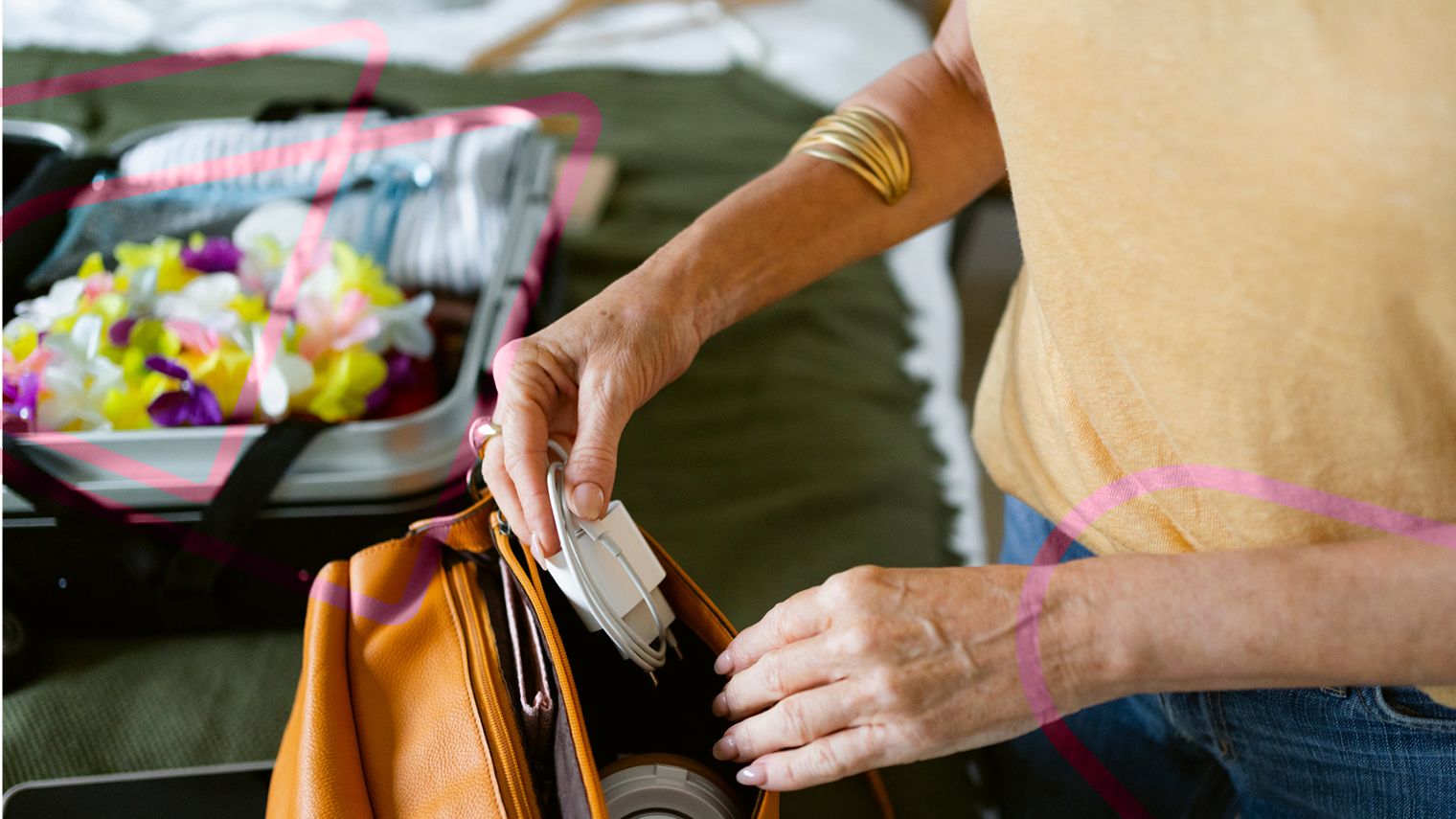3 Ways to Make Chemo for Breast Cancer More Comfortable
November 16, 2022
Content created for the Bezzy community and sponsored by our partners. Learn More

Eloisa Ramos/Stocksy United
Knowing what to bring to the hospital and how to prepare your home can go a long way toward making your experience a little more comfortable.
A breast cancer diagnosis hits you like a Mack truck. You may feel helpless as treatment plans are rapidly tossed your way. I’ve heard from others who blanked out during those first appointments, relying on their care person to take note of what they needed to prepare.
For many, the first round of chemotherapy is scheduled within the first month of diagnosis. Most go in fully unprepared, not knowing what items to bring, or what to have at home to help guide them through such a difficult time.
Not everyone will receive the same regimen, as treatment plans are designed based on several factors. Regardless of the specifics, there are some things you can do to make a difficult experience a little more comfortable.


1. Pack a chemo bag
For personal comfort, I recommend snagging a great travel bag to bring with you to chemotherapy. Make sure the bag is large enough to fit a lap blanket, in case your hospital or treatment center doesn’t provide one.
Here’s what I suggest packing in your chemo bag:
- a soft and cozy lap blanket
- water bottle
- snacks
- a book (for those days when focus isn’t an issue)
- your favorite hard candies (to help with the taste of fluids being pushed)
- travel charger
- headphones (for watching videos and listening to music when sleep is impossible)
- instant cold packs (to help reduce neuropathy in the hands and feet if getting a taxane chemotherapy like Taxol)
- lip balm to prevent cracked lips
- a large supply of tissues and waste bags (for nausea)
- a journal
The journal in your chemo bag will be handy for more than just writing down your thoughts. For many, memory loss can be a tricky side effect, and jotting down your questions or thoughts as they come to you will be imperative when you need to remind yourself what questions to ask your provider.
2. Make your home a cozy refuge
For me, treatment itself wasn’t the hard part. I found it more difficult to stay comfortable on the days between treatments.
When you’re in a medical facility, they usually have most things on hand to help, and your nurses are just a call button away. At home, managing side effects can be tricky — but not impossible.
I started with a good sleep mask to help block light when I needed rest. When hair loss set in, warm beanies and slippers became staples.
Hair loss may come with the loss of eyebrows, eyelashes, and even nose hairs. This can cause your nostrils to dry out, which may lead to frequent nosebleeds. Saline mist spray, travel packs of tissues, Vaseline, and Q-tips may help. Placing a cool mist humidifier in the most-frequented areas of your home can also be beneficial. Be sure to clean it regularly — you don’t want your humidifier to harbor bacteria and worsen things.
Mouth sores and dry mouth are also common side effects. Dry mouth lozenges, mouth sore rinse, and a lip sleep mask should help ease the pain and make eating more comfortable. Avoiding irritants, such as alcohol-based mouthwashes also helps.
Think of your home as your cozy safe space. If other things make you feel relaxed and comfortable — battery-powered candles, warm blankets, scents that don’t make you nauseated — make it a point to keep them around.
3. Accept help
Out of all the things I could recommend, this one doesn’t cost a penny. Support will be your most valuable tool while undergoing treatment. The ear of a friend or relative can change a person’s mood or outlook greatly when all feels impossible. Laughter will always be the best medicine and will brighten any spirit.
Make sure to take time for those that matter most to you and remember not to shut them out. Many people do not know what to say to a person going through chemotherapy, because they are unaware of the gravity of all someone may face. Be honest, be open, and do not be afraid to ask for help.
Gift cards for gas, food, essentials, or just someone to watch a movie with can go a very long way. If they offer to wash the dishes, let them.
If I could go back and do it all over again, I would receive help with more grace than I initially did. It takes a much stronger person to ask for help and be willing to receive it.
The bottom line
Treatment is hard, and it can feel endless, but there are things you can do to make it a little bit more comfortable. This list has been made with love and good intentions and is meant to provide you with a jumping-off point to prepare for the hardest battle in your darkest time.
Now get prepping, because the rest of your life awaits!
Medically reviewed on November 16, 2022
1 Source


Like the story? React, bookmark, or share below:
Have thoughts or suggestions about this article? Email us at article-feedback@bezzy.com.
About the author